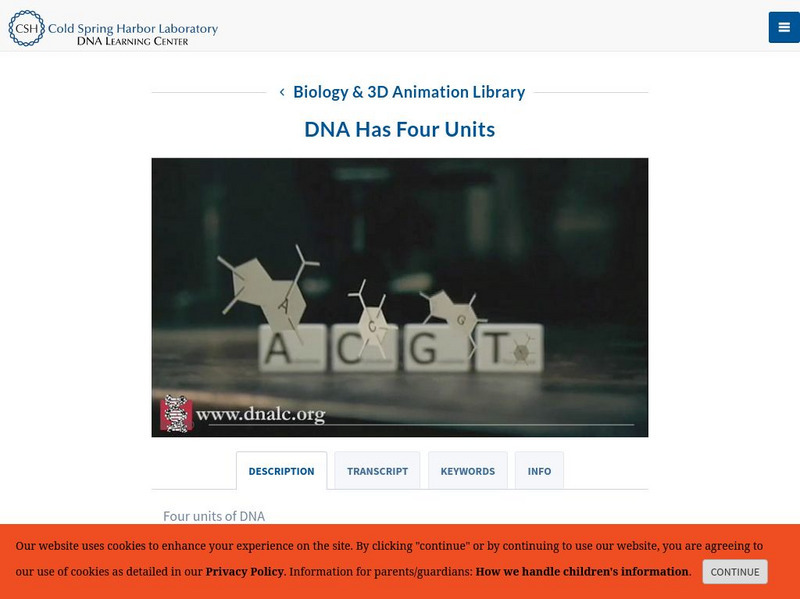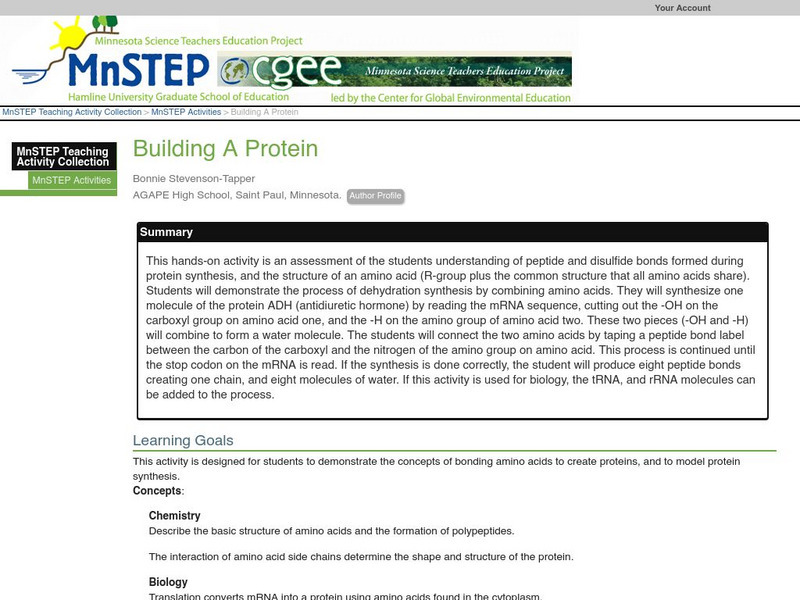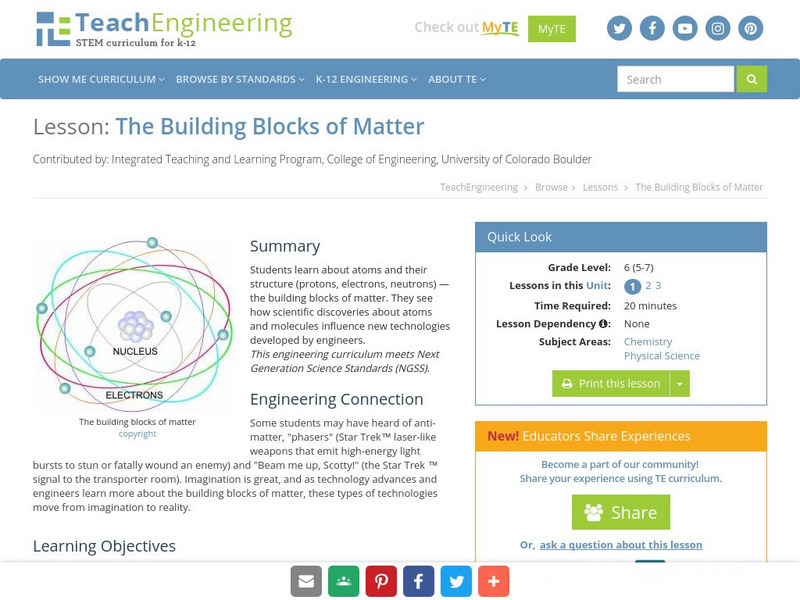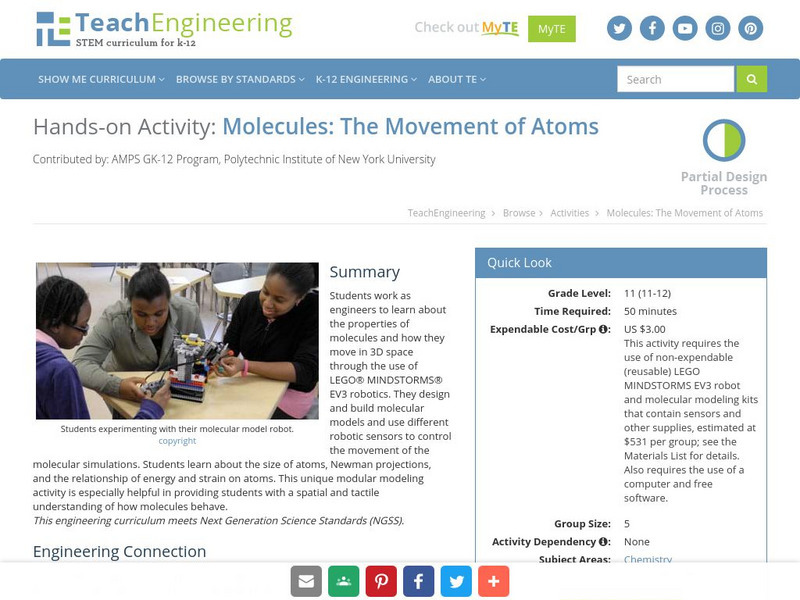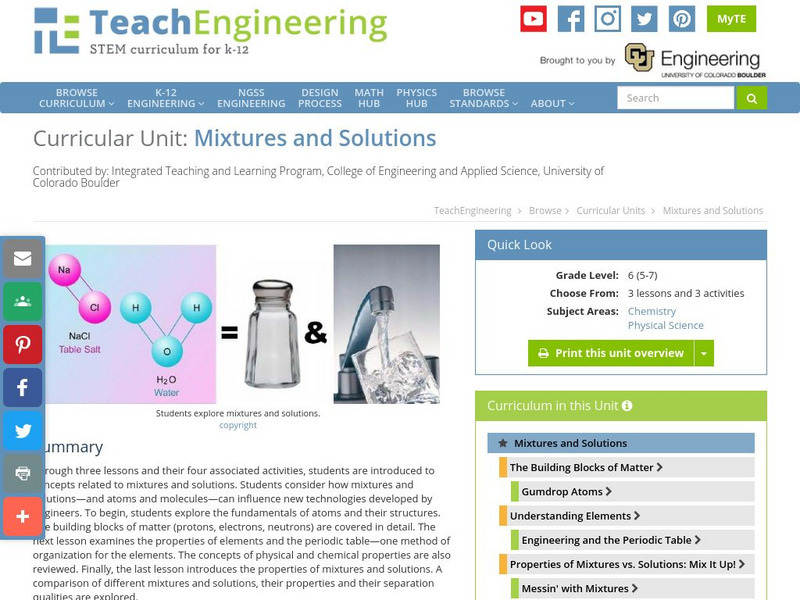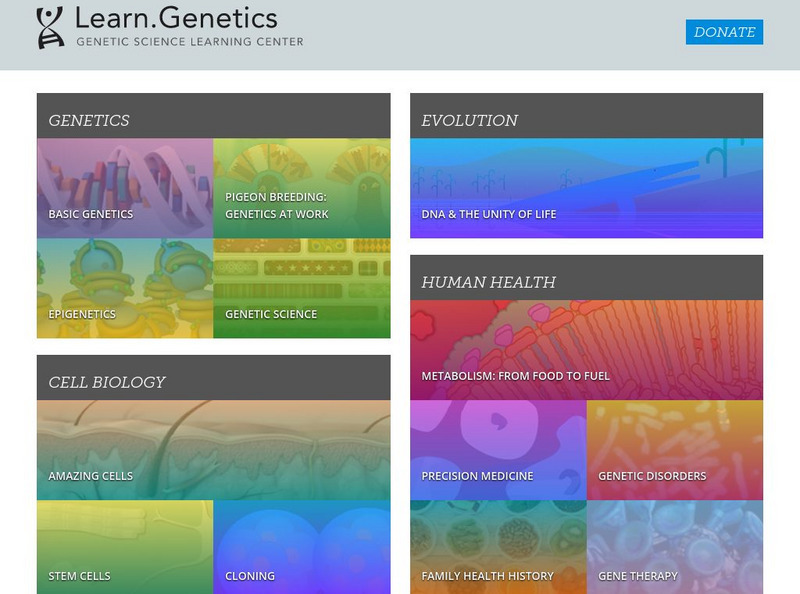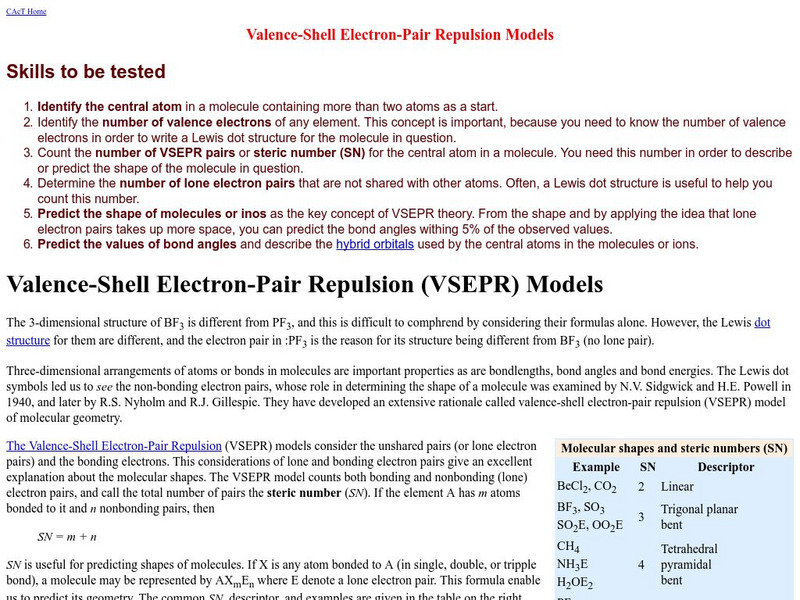University of Colorado
University of Colorado: Ph Et Interactive Simulations: Molecule Shapes: Basics
Students studying molecule shapes will better understand its concepts with this virtual experiment that tests how a molecule's shape changes due to repulsions between atoms. Learning is further enhanced by building molecules in 3D.
University of Colorado
University of Colorado: Ph Et Interactive Simulations: Build a Molecule
Starting from atoms, see how many molecules you can build. Collect your molecules and see them in 3D!
University of Colorado
University of Colorado: Ph Et Interactive Simulations: Build a Molecule
Starting from atoms, see how many molecules you can build. Collect your molecules and see them in 3D.
NASA
Nasa: Atoms and Molecules in Motion, States of Matter [Pdf]
Everythingin the universeis either matter or energy. All matter is made of combinations of about one hundred basic building blocks, the chemical elements on the periodic table. Going a step further and breaking these elements down to...
Cold Spring Harbor Laboratory
Dolan Dna Learning Center: Dna Molecule: Dna Has Four Units
A brief description of the four chemical building blocks of the DNA molecule. [0:25]
PBS
Pbs Learning Media: Build a Steroid
In this interactive activity from NOVA, learn about the molecular structure of steroids. See the intermediate molecules that are part of the pathway for synthesizing cortisone from diosgenin.
Science Education Resource Center at Carleton College
Serc: Building a Protein
This hands-on activity is an assessment of the students understanding of peptide and disulfide bonds formed during protein synthesis, and the structure of an amino acid (R-group plus the common structure that all amino acids share)....
CK-12 Foundation
Ck 12: Plix: Build Some Helium: Atoms to Molecules
[Free Registration/Login Required] Build your own helium atom and make sure it has the correct number of protons, electrons, and neutrons on this site. Site also includes a small quiz on the topic.
TeachEngineering
Teach Engineering: The Fundamental Building Blocks of Matter
This lesson plan explores the fundamentals of atoms and their structure. The building blocks of matter (protons, electrons, neutrons) are covered in detail. Students think about how atoms and molecules can influence new technologies...
McGraw Hill
Glencoe Biology: The Building Blocks of Life: Self Check Quiz
Try these five multiple-choice questions about the building blocks of life. The quiz is self-checking, and provides hints to the student if needed.
Science Buddies
Science Buddies: Build a Bathtub Toy Raft Powered by Surface Tension
In this science activity, you will make a little toy raft that is powered by surface tension, and use your vessel to investigate how surface tension works.
TeachEngineering
Teach Engineering: Molecules: The Movement of Atoms
Students work as engineers to learn about the properties of molecules and how they move in 3D space through the use of LEGO MINDSTORMS NXT robotics. They design and build molecular models and use different robotic sensors to control the...
University of Utah
University of Utah: Learn Genetics: Build a Dna Molecule
Build a short strand of DNA using the base pairing rule. An interactive learning experience that reinforces the base pairing rule.
OpenStax
Open Stax: Andrew R. Barron: Valence Shell Electron Pair Repulsion (Vsepr) Theory
Detailed explanation of Valence Shell Electron Pair Repulsion (VSEPR) Theory with examples and questions for the reader to check comprehension. Also includes step-by-step instructions for correctly building molecules using VSEPR Theory....
TeachEngineering
Teach Engineering: Mixtures and Solutions
This unit covers introductory concepts of mixtures and solutions. Students think about how mixtures and solutions, and atoms and molecules can influence new technologies developed by engineers. The first lesson explores the fundamentals...
University of Utah
University of Utah: Genetic Science Learning Center: The Basics and Beyond
This website offers a clear definition of the science of Genetics, highlighting DNA and genes. There is a neat, easy-to-understand animated tour of the basics and an opportunity to go inside an animated cell. Student can build a DNA...
American Chemical Society
Middle School Chemistry: Changing State: Evaporation
Students build a model of a water molecule and design an experiment to see if adding energy affects the rate of evaporation.
PBS
Pbs Teachers: Hot Air Balloon Experiment
Explore how heat affects the density of air by building and flying a hot air balloon using large plastic bags and the hot air from an electric hairdryer.
Alabama Learning Exchange
Alex: Mirror, Mirror, on the Wall
This lesson covers chiral molecules, which are important in carbohydrate and protein chemistry. Understanding the difference in their structures helps with understanding the different biochemical properties of molecules with similar...
Other
University of Kansas: Quarked!: Matter Mechanic
Build elements and molecules using neutrons, protons, and electrons. Choices include helium, carbon, oxygen, aluminum, water, and salt.
University of Waterloo (Canada)
University of Waterloo: Vsepr Models
The University of Waterloo provides background in pair repulsion and confidence building questions. Try this one once you think you know what you are doing!
Other
Science Alive: What Is Synthesis?
This lesson describes chemical synthesis in terms of building or breaking down molecules and discusses the value of chemical synthesis. Students will have a chance to play an interactive game that is analogous to the process of chemical...
Utah STEM Foundation
Utah Stem Action Center: Salt Dissolved in Great Salt Lake
In this lesson, students will compare water from a fresh lake to water from the Great Salt Lake to begin to build a conceptual model for how salt dissolves in water. The lesson focuses on students using and developing models of molecules...
Concord Consortium
Concord Consortium: Stem Resources: Protein Partnering and Function
A learning module with built-in interactive features where students can read about the differences between large and small molecules, build protein structures, and test their strength under different conditions. They will review polarity...


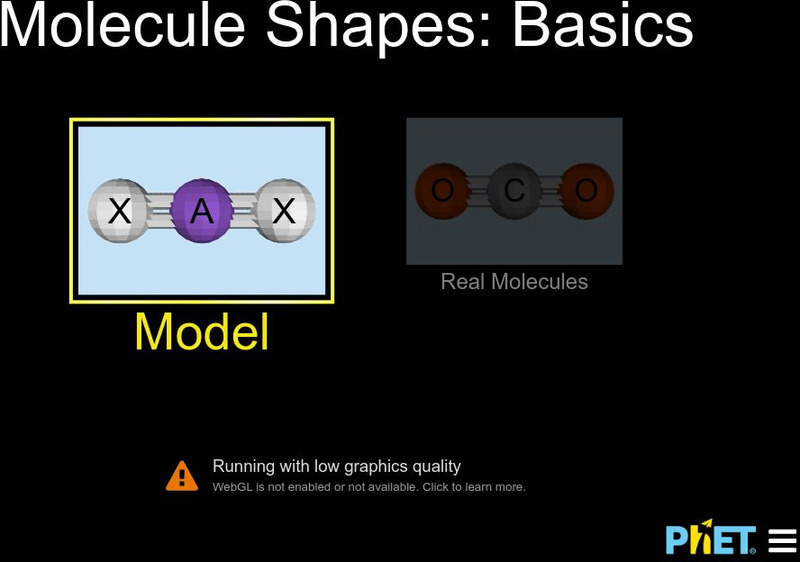
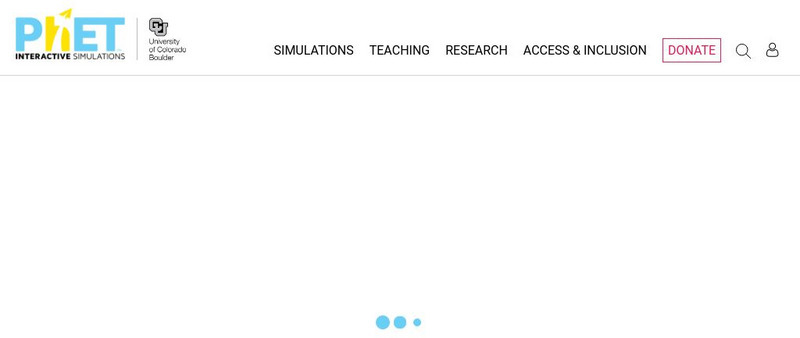

![Nasa: Atoms and Molecules in Motion, States of Matter [Pdf] Article Nasa: Atoms and Molecules in Motion, States of Matter [Pdf] Article](https://d15y2dacu3jp90.cloudfront.net/images/attachment_defaults/resource/large/FPO-knovation.png)
